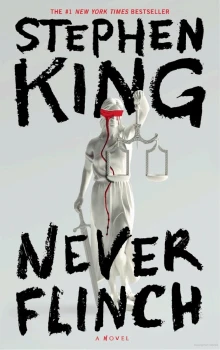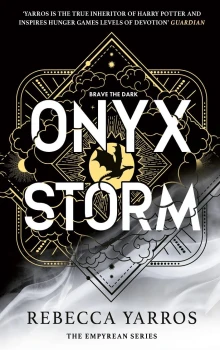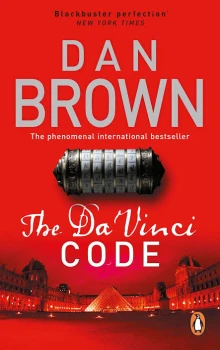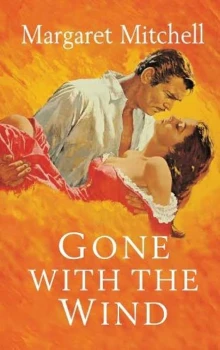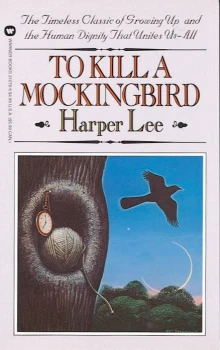2
Though it was true the boy had run out of paths to take, out of ways to salvage his failures, he never planned on jumping off King Philip’s Bridge that evening. It was only when he glimpsed, between the rail ties, the river swirling so massive below, a place you could slip cleanly into, that something in him both jolted and withered at once. They would say he drowned, of course, like that sophomore from Hebron they fetched from the shallows last summer, who got wasted at a house party and waded out past midnight singing to himself, only to wash ashore the next morning dressed in everything but his shoes. There was no shame, the boy thought, in losing yourself to something as natural as gravity—where one doesn’t jump but is pulled, blameless, toward the sea. If nothing else, this would hurt his mother least.
But once he raised his leg and lifted himself over the railing, he spotted the second platform below, jutting far enough to make the leap impossible. He paused, stared across the swirling valley charred by the gloam, and glimpsed the spot where the river turned toward Chester County, where the towns are so small you could light a cigarette as you drive in and be someplace else before you blow your first drag out the window. He sucked in a breath, let it mist over him, then toed his way to the lower platform, where he thumbed off his pack until a mute white splash winked below and it was gone. Grasping the steel cables, he inched himself toward the bridge’s center, where the fall would be highest, the current below churning through the metal beams.
A few yards in, he paused. The bridge was over a hundred feet tall, he knew, from a field trip back in middle school. It was once the town’s most prized achievement, meant to bring passenger trains and money into the heart of Main Street. But the trains never stopped, passing the town on their way to Boston, Providence, Buffalo, Portland, even Montreal. Now only the freighters cut through, carrying strapped lumber or barrels of grain from Ontario. The bridge was painted bright yellow to signal this errant optimism, the color gone now save for a few bolts buried deep enough in the beams to be spared from weather.
Streetlights had come on over the mud shelves hugging the bank, giving the water the brushstroked glow of sunlight touching wet pavement on summer mornings—the kind of light you’d see nowhere else. “Sorry,” he whispered to no one over the rush as the wires slickened under his palms. The rain, pouring steady for three days, drenched his hair and ran cold down his neck. The girl back at New Hope had mentioned, without him asking, that if you dive after breaking the surface and rush to touch the river bottom, it’ll be enough, that the rapids will drag you forward and all you have to do is close your eyes until the icy water grows warm and quiet in your lungs and your pineal gland floods your brain with DMT and before you know it you’re flying in a clear, windless sky, free from the human cage of your body.
What she didn’t mention was that when you come up to the edge, there’ll be another edge, inside you, one that’s both passable and insurmountable at once. He swallowed hard and looked down at his boot wobbling over the beam. That’s when he saw the corpse floating toward him, its limbs stretched and opaque beneath the river’s surface. The face staring skyward with shut eyes and its clothes billowing from the thin frame. He gasped and wiped the rain from his eyes with both hands and looked again, blinking. But it was still there, clearer even. He hid his face in his sleeve and clung fast to the wire when a voice called out from somewhere across the water. He thought it came from his own head until he heard it again. “Come back. Come back now! Jesus Mother Mary, not now, not today.”
He searched the bluffs and saw, set on the riverbank, a two-story clapboard house leaning toward the river. Attached to it was a wrought iron fire escape where a woman was waving her arms about, fighting with some sort of laundry line. He glanced back at the water and realized it wasn’t a corpse at all but a bedsheet twisting through the current. A blast of wind ripped another sheet out of her arms and carried it a ways before it wilted around a nearby maple.
“Hey, your blankets!” he shouted from instinct, and quickly regretted it. He stepped back under the beam’s shadow, making himself small. But too late.
The woman stopped, leaned over, and squinted at the bridge. Her glasses, reflecting the nearby streetlamp, flickered gold. From her shoulder-length white hair and stooped gait, she seemed elderly.
“Who’s there?” She shielded her eyes and called through the rain suturing around her. The boy pressed himself against the struts, a steel bolt digging between his shoulders, and kept still.
“My goodness!” she gasped, eyes wide. “What are you doing? You crazy or what? Father in heaven help us. Get the hell out of there!”
Shivering, he leaned into the cone of light, somehow more troubled that a stranger had caught him on the edge of his life than by his own impulse to end it. “It’s not what you think,” he yelled back. “I was—I was just studying the water.” He pulled back his hood and offered her, like a caught criminal, his boned face, pale as a newt’s and framed by a black bowl cut, a girlish but useless tenderness softening his eyes. It was pitiful, being found like this. What kind of idiot puts himself, on a whim, under a bridge and must now convince an old woman that it was all—what, exactly?
“Don’t be stupid.” She glanced around and pushed her glasses up with her middle finger. “You can’t die in front of my house, okay? I don’t need any more spirits around here.” She made the sign of the cross and gripped the railing as a slew of foreign words droned out of her. Her sheets had all blown away save for one blue towel whipping beside her face.
“Okay, okay! Listen.” He held out his hand as if they were steps from each other and not halfway across a river. “I’m not gonna do it. I promise. I…I’m just inspecting the bridge. I’m a student—and wanna be an engineer one day.” By now his lies came so easily, they rolled off his tongue like train cars heading off a cliff.
“Just get the hell down. I’m serious. Or I call the police.”
“Okay, alright. Relax.” Gently, he scooted across the beam toward her side of the bank. The woman disappeared into the house, then stuck her head out the next window closer to him, tracking him as he went. At one point his boot juddered over a rivet and she yelped, cursing in her native tongue.
“Put your foot over there. No, there.” She was halfway out the window, pointing to a spot he couldn’t see. “Now move to the left. Yes, wait—that other left. Good. There’s a ladder over there. Go to it and climb. Climb, boy. Hurry.” She jabbed her thumb at the sky. “Up, up! That’s it.”
He footed toward a metal ladder soldered to the bridge and pulled himself, arms jumping from cold, back to track level, then leaned over the rail and gathered his breath. “Thank you, okay?” He waved the woman off. “It’s all good. I just wanted to see the girders up close. I’m heading home now, don’t worry.”
“Bullshit! You wanna die. Come over here.” She pointed with her chin toward the shore. “Get over here or you can explain it to the cops. You think I’m kidding?” Her hair was matted from the downpour and a ring of water had darkened the collar of her gown.
The boy rose and scuffed across the bridge as she followed him from window to window, muttering to herself. When the dirt embankment appeared under the platform, he hopped over the rail and hurried toward the house. The street was flanked on both sides by shambled row houses that resembled a set from a war movie. Through the exposed walls, where pink insulation had spilled out, he glimpsed into moldy, moss-lined living rooms. One house was half burnt, its interior filled with grimy clumps of furniture where a young tree had taken root through the floorboards, its top branches clawing a gash in the second floor.
The woman’s house was on the river’s side, her back door just yards from the water. Through the decades, it had acquired the hues of the riverbank itself, slate grey and beige-speckled, the paint on the clapboard long stripped. As he reached the front steps, the main door opened and a shock of white hair poked above the screen door’s frame. She was struggling with the lock, so he gave the handle a yank and the door flew open, revealing a woman who must’ve been at least eighty. She was tall as his eyes, had a square jaw and a bulbous nose under wire-rimmed glasses that covered her entire face save for a chin that resembled the end of a dinner roll.
His own tortoise frames were beaded with rain, and he saw her as only a smear of beige colors. They watched each other a moment, the dark settling around them as he swayed on his feet.
“I’m sorry,” the boy said again, dripping. “I’m not gonna jump off that bridge no more, okay? I promise. Can I go now?”
“Come in. But take off your shoes. My husband put down these floors.” The woman disappeared into the house. The boy hesitated, looking down the empty street. The rain was picking up again. He stepped onto the porch, water running off him in rivulets, took off his boots, and followed her inside.
A creaky rail house built by freight workers over a century ago, the home was one large hallway divided into three rooms: a parlor, a dining room, and a kitchen, whose dim light now glowed at the far end like the hearth of an ancient cave. Furnished in a style the boy had seen only in the black-and-white TV series Lassie, whose reruns he watched on a three-channel Panasonic as a kid, the house had the stuffy odor of rooms whose windows rarely opened undercut with the mildewy rank of crawl spaces. As his eyes adjusted, amorphous furniture upholstered in sprawling pale florals came to view. The walls were wood-paneled and adorned with cheap landscape paintings in gilded frames. As he passed the transom that divided the parlor from the dining room, he looked up and saw what was once a white cross, now phantom-grey from decades of dust. On one wall, lit by streetlights, a cluster of grim-faced portraits stared out from an era he couldn’t locate. He paused at the kitchen’s threshold, water falling from his chin and hair on the laminate floor.
The woman sat down at a small table and nodded toward an empty chair. “Go on, sit. You look like a dunked cookie.”
He sat carefully, his eyes taking in the room. Not knowing what to do with his hands, the boy placed them, palms up, on the table but withdrew them to his lap when he realized this looked psychotic.
“Here, dry yourself.” She handed him a dish towel. It smelled of raw onions but he wiped his face anyway, his eyes quickly stinging.
“Poor kid,” she mumbled to herself. “Hey, it’s all over now, okay? Whatever happened is over. But don’t you cry, boy. Tears deplete your iron, you know.” She grabbed the rag, leaned over and dabbed his eyes some more, deepening the burn. He winced and turned away. “Okay, you’re not a boy. You’re a man and don’t need nobody to wipe your tears.”
The kitchen was the size of a large shed and contained a stovetop browned with grime-stuck grease, a sink, and a portion of countertop the size of a cutting board. They sat at a round table covered in plaid plastic meant to look like picnic cloth. From its center, a fabric-shaded lamp trimmed with tulle emitted a sickly amber glow.
She grabbed a nearby pack of cigarettes, a brand he didn’t recognize, slipped one between her lips, and put a lighter to it. “I normally don’t smoke.” She took a drag and stared at him, not unkindly, then leaned over and pushed aside a large stack of magazines. They were decades old and printed in a language he couldn’t make out.
“Lithuanian,” she said, clocking his curiosity. “Know what that is?”
He shook his head, wiping the onion tears from his cheeks.
“An old country, far away, where I was born.” She waved the cigarette about and took a drag. “But all countries are old, if you think about it.”
But he had never thought about it. He had rarely thought about any country, least of all the one he was born in—only that it, too, was far away.
“Want one?” She handed him a cigarette.
Before he could answer she placed it in his mouth and lit it.
“You like my owls?” She pointed over her shoulder where an armoire loomed behind her. Behind its glass doors was a fleet of owl figurines of many shapes and sizes, some porcelain and shining, others the matte of wood or clay. “Every owl was made in a free country. None of my owls,” she leaned back, “came from Communists. Understand?”
He lied by nodding.
Above the armoire were three paintings of owl portraits, their faces bloated as old mobsters, each one depicting, like a Rembrandt study, a new angle to the bird’s face. In fact, owl knickknacks, tchotchkes, and icons stared at him from nearly every surface. “I collect them. Don’t know why really,” she shrugged. “People started giving them to me long ago. Now it’s my calling card.” She smiled weakly through the smoke. “What’s your name anyway?”
“Thanks for this.” The boy took a long drag from the bogie. “But I should go.”
“Easy, little lamb. I invite you in my home, give you cigarette. And look,” she tilted the pack to show him, “I only have two left. I even let you cry in my kitchen. You know it’s bad luck to cry in the kitchen, right? You can at least tell me your name.”
He stared at the plastic coverlet on the table pocked with holes and considered the name his mother gave him, the thought of it sinking him. It wasn’t that he didn’t like his name—only that he had been willing to toss it in the river. He had never wanted to throw his name out, just the breath attached to it. The name, after all, was the only thing his mother gave him that he was able to keep without destroying.
“Hai,” he mumbled.
“And hello to you too. But—”
“No, Hai. It’s—”
“Okay,” she breathed, “but who am I saying hello to?”
“My name is Hai.”
“Your name is Hello?”
He decided to nod. “Sure.”
“Ah.” She brightened and pointed a crooked finger at him. “So your name is Labas!”
“What?”
“Labas means ‘hello’ in my country.” She extended her hand across the table for him to shake. “Hello, Labas. I’m Grazina. Means ‘beautiful.’ ” She grinned, the cigarette smoldering through her yellow teeth.
He shook her hand, cracked dry and warm. “Hello.”
“Now we know who’s who. So, you were delivering packages and decided that today’s the day you had enough, huh? That what they mean when they say you guys go postal?”
Hai looked down at his UPS jacket. “Oh,” he said. “No, a friend gave me this. I don’t deliver anything. But I’m sorry about your sheets.”
“Ack.” She waved him off. “You live long as I do and everything’s a rag.”
He stared out the window at the bridge where he’d stood only a half hour ago. Now dark, its row of lights stretched to the other side. “I’m sorry again for all the trouble. But I’m okay now, really.”
“Don’t be sorry. Living all these years next to a bridge, you see crazy things on it. One time, on Christmas morning, a whole container of chickens tipped over as the train crossed, the top rows falling over the sides. Poor things. They drowned in their cages. But some got loose and swam. Can you believe chickens can swim? Beats being eaten, no?” She let herself laugh. “But I’m glad that you, Mr. Hello, you didn’t become another chicken, huh?”
Just then something flickered in her expression and she stopped, her eyes drifting to a spot just over his shoulder. He turned around but found only an old Frigidaire plastered with coupon cutouts, their edges browned and curled. Something about Grazina was off, he realized now. There was a twinkle in her eye that held without pause as they spoke, as if lit by an artificial source. “Labas,” she leaned forward and said in a hushed tone, “you want to know the secret to getting rid of every sorrow known to man? Do you?”
He blinked at her.
“I’m serious. Here—grab those dinner rolls hanging behind you and follow me. Go on, they don’t bite.”
She crossed the kitchen and opened a back door he hadn’t noticed before. Rain flew in and broke as mist across the room. Beyond it the river roared up from the banks. “Come, boy,” she called from outside. “I’ll show you what I mean.”
He took the bag of rolls and stepped out, the sound of water filling his empty head. He considered making a beeline across the yard and running for it, but his feet wouldn’t budge. The backyard was a plot of dirt flecked with tufts of grass drenched in mud. Twenty feet away, over a concrete embankment crumbling at the lip, ran the river. It was nightfall but the yard was lit weakly by sodium lamps from the street. Grazina hobbled toward the center of the plot, swaying as the wind tugged at her gown, and waved him over.
“What you gonna do with these out here?”
“Just come and put the rolls down. No, open them first. Good, now just dump them.”
“What?”
“Just dump them out,” she shouted over the river.
He flipped the bag over and about a dozen rolls fell onto the mud.
“You ready?” she said.
Before he could answer she stomped on one of the rolls, flattening it. Then she did the same with another, this time twisting the toe of her slipper, grinding the roll in the ground so the crumbs broke off and disintegrated. “Isn’t that wonderful? Now you try, Labas.” Her face flushed with delight, she grabbed his hand and pulled him toward her. “Go on, step on one. Trust me.”
He pressed a socked foot on a roll, nudging it with his toe.
“For Chrissakes, it’s not roadkill. Go ahead and step on it. Good. Now go stronger.” Her hands were on her knees, urging him like a deranged coach. “That’s it! Yes, with all your weight. Crush those bastards.” She grabbed his ankle with both hands and pressed his foot onto the roll. When he lifted his foot, the bread was sunken in the mud, the sock fabric waffling the wet dough. “Don’t think about it, just do another. Isn’t this fun?”
He crushed another roll, then another as Grazina cheered, her voice cut with childish glee. Before long they were stepping from roll to roll, going in circles. “Anytime I feel my soul going dim,” she panted, “I just step on some rolls and it’s like a magic spell.”
He pushed his heel into one of the last rolls, then dragged it in a wide arc through the dirt, the crumbs sloughing off, leaving a powdery comet shooting across the mud as Grazina clapped and shouted in Lithuanian.
All around them the bread browned and sopped into pale lumps as they went on stepping. From far away, across the river passing in your car, you would’ve seen two people dancing in a rainstorm in a cone of light on a Connecticut night at the end of the first decade of the century, and forgotten that the country was at war. Hai’s laughter, which sounded far away and foreign to him, faded as he caught his breath. There was something to this after all, he conceded.
Grazina patted his back, her spectacles white with rain. “You did it, Labas. You’re a natural bread crusher. Before, in Lithuania, bread was precious. We had to eat even hard, moldy bread, green bread that tasted like gasoline. Now we can crush them anytime we like,” she made a fist at the word crush, “and no one can punish us. But come, come here. We must pray now, boy…” She leaned in and gripped his shoulder. “May the Lord forgive us this sin of wastefulness,” she began, her voice wobbling with her balance, “may He also watch over the strangers and uphold the orphan and the widow, but the way of the wicked He brings to ruin. For the Lord is not slow to fulfill His promise as some count slowness, but is patient toward you, not wishing that any should perish, but that all should reach repentance.”
He watched her as she prayed, this bent stub of a woman, hair matted at her temples, whose voice had earlier coaxed him back to solid ground.
“How do you feel, Labas?” Around them was a circle of decimated bread.
“I feel beautiful,” he nodded, refreshed by this bewildering new realm he had entered. “I feel Grazina.”
He woke to the train whistle blowing across the river and knew it was morning. When he spotted his UPS jacket hanging on the wall, a puddle collecting beneath it, last night’s events resurfaced. After they’d crushed the bread rolls in the rain, Grazina had offered him, over tea, a spare room to wait out the storm for the night, and he gratefully accepted. But after sinking into a deep, dreamless sleep, he woke in the wee hours to the sound of someone singing. Clear, pristine, lilted singing, like a voice coming up from a cavernous well. Groggy, he glanced around the room and saw, in the half dark, the wooden owl figurine on the desk and realized where he was. He pulled the covers back, left the room, and tiptoed down the carpeted hall before stopping at Grazina’s door. It was only when he lowered his ear to the door that he recognized the melody to “Silent Night.” He held his breath. Her voice was hollowed out and girlishly high, not the grate of an Eastern European sailor he’d heard earlier. He gave the door a push until, through the widening crack, he saw Grazina lying stock-still and staring at the ceiling, her wide-open eyes catching the wet light from the window as her mouth worked the lyrics through the chorus. He stood staring a moment, feeling both terrified and like a creep at once. “Grazina,” he managed, but she kept singing, not that he’d know what to do if she woke. He shuddered, eased the door closed, then hurried to his room and pulled the covers over his head. He didn’t know how long it took before her voice dimmed, but eventually it did and he drifted off.
He was lying now in the dusty morning light, collecting himself, when a frying pan started hissing downstairs, followed by the clang of pots. He went over to where his jacket hung and ran a finger down its arm, his attention lingering on the stitching. The jacket once belonged to his friend Noah, a boy he met working tobacco when he was fourteen, the crop blooming verdant along the river that carved East Gladness in half. His real name wasn’t Noah, but that’s what Hai started calling him a week after he died. Because why shouldn’t the dead receive new names? Weren’t they transformed, after all, into a kind of otherhood? Like many boys throughout the county, the wide green valley swallowed Noah up and spat out a tombstone the height of a shoebox at Cedar Hill, high enough to hold his name and nothing else. It was one of those friendships that came on quick, like the heat on a July day, and long after midnight you could still feel its sticky film on your skin as you lie awake in your room, the fan blowing in what remained of the scorched hours, and realize for the first time in your peep of a life that no one is ever truly alone. It’d been two years since Noah’s pine box was hammered shut, and nearly every day since, the UPS jacket draped over Hai’s bony shoulders, sometimes even in bed on especially cold nights, the leather torn in places and the U nearly peeled off. But skin is skin, he told himself, even when it’s not yours.
He dressed and laced his boots, then reached into the jacket’s inner pocket. Under the crushed pack of Marlboros, gum wrappers, a few coins, he found the contact lens case, held it to his ear and shook, listening for the pills, then slipped it in his pocket before heading downstairs.
A single perfectly browned latke slid onto his plate, leaving a trail of oil over the stoneware dish painted with faceless angels circling the rim. Grazina placed one on her own plate, then dropped the pan in the sink with a hush of steam.
“That’s my great-aunt.” She pointed with her chin to a daguerreotype on the wall of a scowling woman in a headscarf.
“She looks nice,” Hai said.
“She had a humpback and a heart of gold. But her husband was the devil himself, poor Agne. Where are your people?” She closed the fridge with her hip. They had been filling the space with small talk since he came down, but he now sensed a change in her voice.
“I don’t got any people. Just my mom across the river. But I can’t see her now.”
“A son and a mother. That’s people enough, no? Why can’t you see her?” She placed a bowl of baby carrots before him and sat down fiddling with the table cover. “Probably none of my business.”
“I messed up some things, that’s all.”
“Like your glasses?” She chuckled at the broken corner of his tortoise glasses, wrapped with duct tape.
“One of many casualties, yeah.” It had broken back at New Hope during a scuffle he wasn’t even a part of.
She looked him up and down, eyes cautious, then lifted an owl-painted teapot and filled their mugs. He drank and wiped his mouth with the back of his hand. He’d never used a saucer before and found the clack that punctuated each sip oddly satisfying. “I heard you singing that Christmas song last night,” he said, trying to sound casual. “Think it was ‘Silent Night.’ You have a great voice.”
She shot him a puzzled look. “Don’t be silly, Labas. I’m no singer. When I was little I was in the church choir, but then they snipped my tonsils and that was that—kaput. If anyone was singing, I’d hear it. I have good ears.” She tugged on one ear. “Like rubber, from my father. Must be those coyotes across the marshes.” She nodded across the street. “They go crazy when it rains.”
Surely he hadn’t dreamt it all up—though the man at New Hope did warn him about having nightmares once he got back to the real world.
She gestured at the bowl of raw carrots. “Those are for you. Eat up.”
Hai took a bite from a carrot, then picked up his fork, eager to try the latke.
“No, eat the carrot first. Please.” She leaned forward, knife and fork on each side of the plate, a paper towel tucked in her collar. “It’s important.”
He finished the carrot, then picked another from the bowl and put the whole thing in his mouth.
“They’re good for you, believe me.” She cut into her latke like it was a steak and ate.
“For the eyes, right?”
“That’s a lie the army told in World War Two to hide the fact that they used top-notch radar. Carrots,” she paused for effect, “give you the will to live.”
He took a bite of the latke, which was perfectly made, crispy at the edges and delicately salted with a touch of herbs he couldn’t name. “What do you mean?” he said, chewing.
“It’s a root. And roots prevent you from getting the blues.” She picked one from the bowl; it gleamed under the kitchen light. “You see, carrots become bright orange because it’s so dark in the ground. They make their own light because the sun never reaches that far—like those fish in the ocean who glow from nothing? So when you eat it, you take in the carrot’s will to go upward. To heaven.” She tucked the carrot back in the bowl, gently, as if it were a tiny person. “Ever heard of a rabbit jumping off a bridge?” she winked. “Of course not. That’s because they have the light in them.”
He had never heard this before, but somehow it made sense.
“When I get the blues, mostly in February, I boil a pot of these and dip them in honey. When my husband died, I ate nothing but carrots for six months straight, and you know what?” She pointed the butter knife at her eye. “Not a single tear. They’re stronger raw, but I lost my molars in ’91. Bush Senior, what can you do?”
“When did he die, your husband?”
“When does anybody die?” she shrugged. “When God says Well done.”
By the time the tea was down to its dregs, Grazina grew quiet. Something in the kitchen was ticking. Their eyes met and she looked away, then back at him, on the verge of saying something—but mumbled to herself in Lithuanian, shaking her head. He poured more tea to fill the silence. The kitchen, he realized, was only bright when the back door was opened. Closed now, the place was dim and hourless as a bunker.
“Now,” she cleaned her teeth with her tongue, “the place is old and falling apart but there’s plenty of heat from the oil boiler, which gets filled every second Friday. There’s a leak in the bathroom ceiling but it goes right into the tub, so who cares, right?” She shrugged. “There’s no washer or dryer, but you can do it in the tub and hang it on the clothesline. And you’ll need to help with fetching the groceries, set the mouse trap, and toss the occasional poor bastard in the river.”
“Hold up.” He set his cup down. “What are you talking about?”
“You don’t gotta pay no rent and you can have my daughter Lina’s old room. Where you slept last night. I’m not difficult. I just need help taking my vitamins. And just…” She fingered the magazines on the table. “It would be nice to have someone around. I’m eighty-two this year, you know, and…” She trailed off, looking down and away.
“You want me to stay here?” He scanned her face, then the owls behind her.
She held up her hand. “Just listen first, okay?” She went on to tell him about this live-in nurse named Janet who was covered by Medicare. Janet was assigned to Grazina after she’d fallen halfway down the stairs and ended up in the ER at Hartford Hospital. But then Janet got married to some biker, hopped on a Harley, and floored it to New Mexico, never to be seen again. Grazina was put on a waiting list for another live-in nurse, which, in these parts, could take months, sometimes years.
Hubbard Street, Grazina went on, was known locally as the Devil’s Armpit due to a massive metam sodium spill from a shipping barge coming down from Buffalo back in ’88. The toxic sludge had leached into the soil, and then the pipes, so badly the city paid the residents to relocate. Within a year only squatters burning bonfires in ravaged living rooms remained. The Army Corps of Engineers started demolishing houses but left after an electrical fire broke out, exposing asbestos in the walls. They never came back. Homeless camps popped up along the banks through the years, but the land was too cold and blighted for them to last. Grazina and her husband refused to leave, opting to keep their two-story biohazard teetering toward the river. “Our lives are here. I was married in that living room for Chrissakes. How could we leave?” She threw up her hands. “Anyway, a new nurse came—this was right after Janet—I see her car come up the road there, then it stops. She makes a call on her little phone before turning around and zooming right out of here. I never saw her again. No one wants to live in this dump with an old lady. Now I’m back on the list, this time who knows how long.” She rested her arms on the table and leaned forward, her tone softening. “Look, if you really have no place to go, like you said, then you can stay long as you need. To get yourself together. But I’m not asking to be a charity case, capisce? I’ve made it by myself long enough. And you still have your mother, yes? Maybe you need to go to her and make things right.” She took a sip of tea, watching him over the mug’s lip. “A son should make peace with his mother before anything else.”
He listened, his head tilted with the weight of her offer. But even before she finished, he knew he’d say yes. After all, he had never refused anything given him without a price, which was how he ended up where he was in the first place.
“You wouldn’t want to live with a kooky owl lady, would you?” She chuckled nervously.
The chair creaked as he leaned back, blinking. “You sure about this?”
She nodded over her glasses.
He reached out and held her hand, surprised by his own relief. “But just to get back on my feet, yeah? Then I’ll be out of your hair.”
How he would pull this off, there was no telling—but it was a narrow passage worth taking, a feeble tributary that should at least end up somewhere.
Grazina lowered her head, her hair falling across his arms and onto the greasy plate. When she lifted her face, her glasses were askew and her eyes full. “We’ll make a good team, right? We’ll make do with what the Lord gives us.” She exhaled and lit her last two cigarettes, handing him one. “You believe in God, boy?”
He took a long drag and considered this. “He’s probably around sometimes.”
“Clearly not as much as the devil,” she cackled, her missing front tooth winking behind the smoke.

